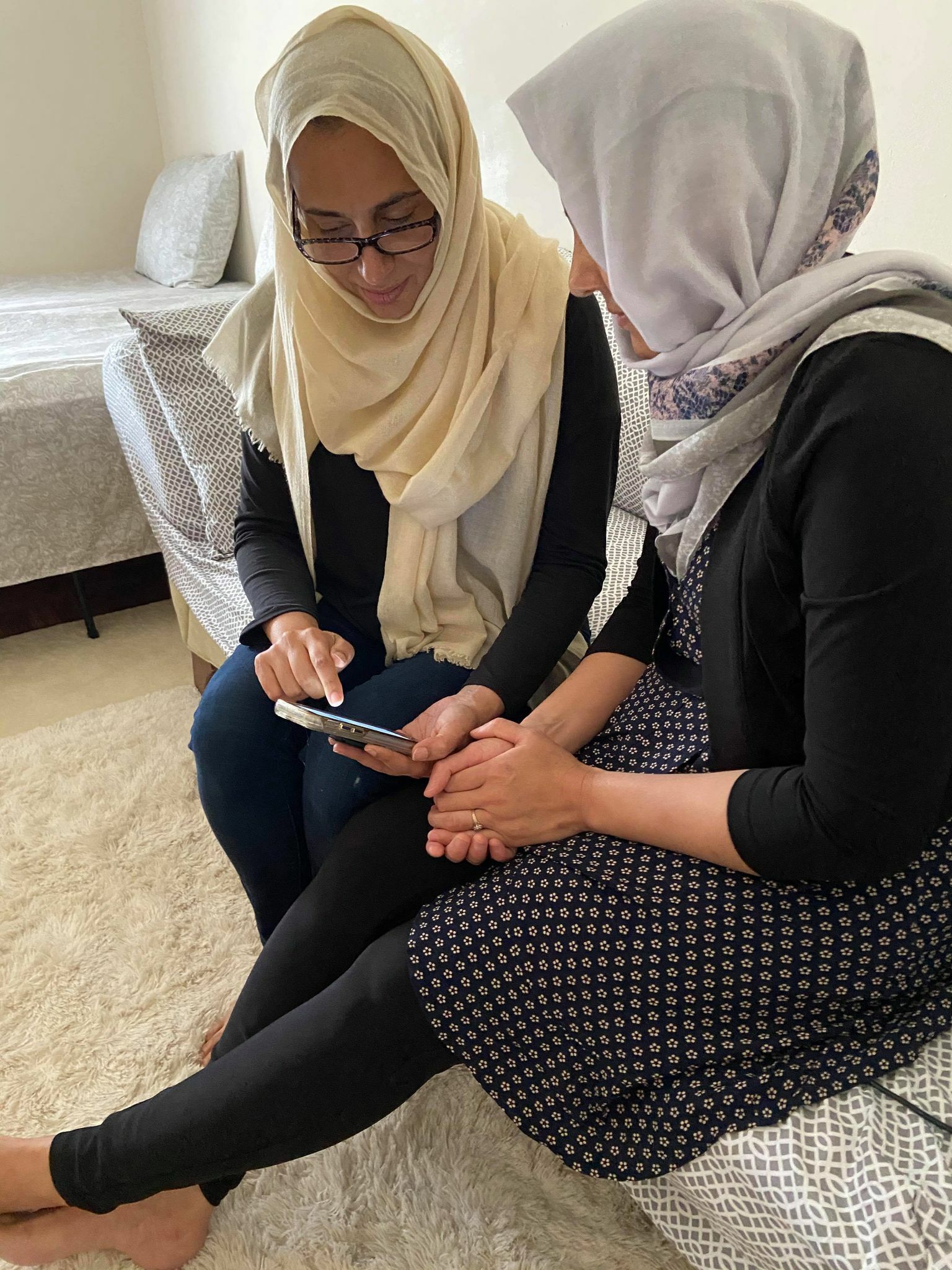
Hazrat is an engineer from Afghanistan with 10 years’ experience in the construction business. He is highly educated and highly skilled. He came to the US after the Taliban targeted him. While he is grateful to be safe, he is having a hard time finding a job in America in his preferred field. His biggest obstacle to employment? He doesn’t speak English.
Susan is a mother resettled from Africa with 4 children who obtained WIC coupons to help feed her children. And yet, she was unable to use those coupons, because her English wasn’t good enough to navigate that system.
There are many parts to a refugee’s story. At TSOS we see so many stories of harrowing journeys, separation from families, and struggle towards freedom and safety. But how does the story continue after a refugee family is safe? When they have food, clothing, housing, and furniture, what happens next? How does a refugee move forward in a new country? How do they bridge the gaps they face that are necessary for integration into a new place? Most importantly, how do they learn the language fast enough to get a job and be productive in their communities?
Hampton Roads Refugee Relief’s mission is to answer those questions. The non-profit organization is working to help integrate refugee families who have settled in southeast Virginia. One of their programs involves providing English classes for refugees to help them learn the language so they can better navigate their new environment.
I spoke to April Wells, who runs the ESL program for Hampton Roads Refugee Relief (known as HR3) and asked her about HR3’s mission and program.
“Our mission is to help bridge the gaps for refugee families,” April says. “They get a really strong initial three months assistance from the resettling agency. But right after that initial three months, they’re on their own. We help them long term to fully acclimate to this area and become fully integrated. We’re all about resilience and self-sufficiency. That’s what we’re aiming towards.”
HR3’s ESL program works specifically with mothers and children.
“These women feel extra isolated, the mothers in particular,” April says. “You know, the kids go to school, the father is going to work, the mothers get the least exposure to English. So that was my priority.”
April didn’t have any formal training when she started but has experience in tutoring and speaks some Arabic. HR3 does not require their volunteers who work with the ESL program to have any formal educational experience and offers training and support for those who want to help.
Initially the English tutoring happened in the student’s homes, but COVID19 has forced HR3 to move the classes online. However, that hasn’t stopped the women from participating. Currently there are 19 women in the class. They don’t all sign on to the call at once. The classes are broken up into smaller groups. HR3 offers two classes, beginner and intermediate. And the benefits of taking the class go beyond just learning English.
“They’re learning English, but also it gives them a larger sense of community,” April says. “We have, you know, a message group, where we send out zoom links for homework. They can ask each other questions. They all call each other sisters, and we follow along whenever a student has a baby, whenever a tutor gets married, these sort of things. And I think particularly now with COVID-19, it’s really helping us feel less lonely.”
HR3 also will run targeted sessions for when somebody needs help with specific vocabulary, like preparing for the citizenship test, working towards getting a GED, or struggling with an academic subject at school.
I asked April if she had any preconceived ideas about working with refugees, and how those ideas had changed over time.
“I came in thinking I had to reel in my personality,” she said, “that I had to err on the conservative side, that I had to dress super conservatively, cover up all skin, etc. I wanted to err on the side of caution. But I’ve grown to learn that they’re just happy to have me as I am. I don’t need to change anything.”
April said that HR3 is always looking for volunteers who would like to help refugees in the Hampton Roads community. If you are interested in working with HR3’s ESL program or donating to help them with their mission of integration, you can find information on their website, www.hr3VA.org.